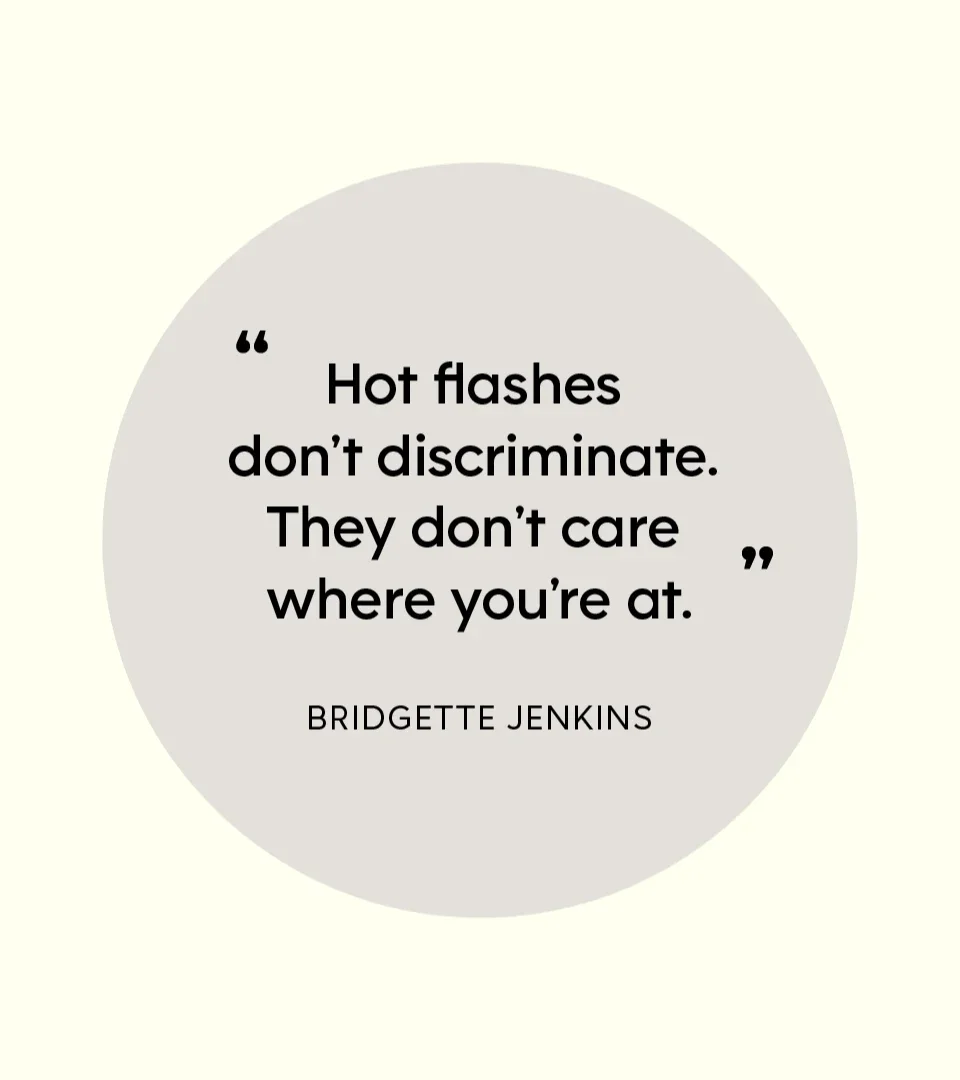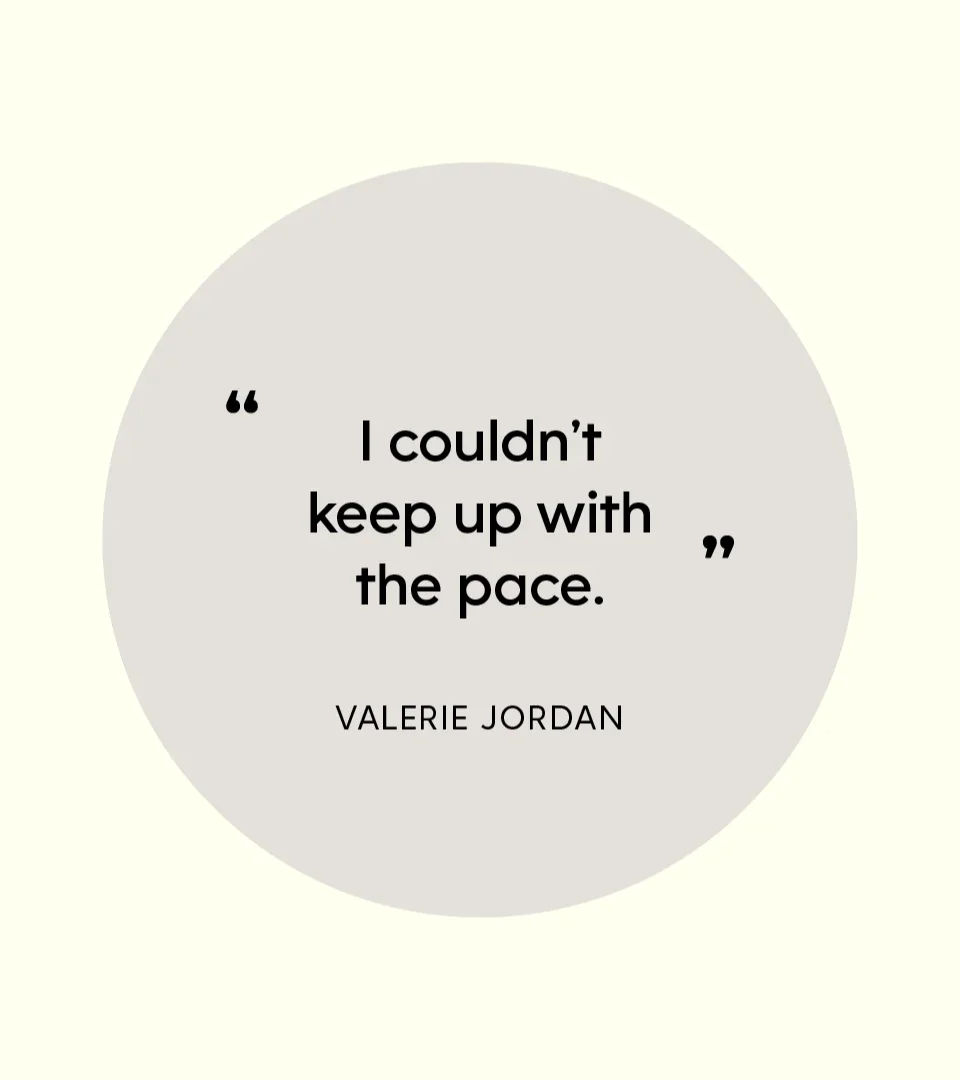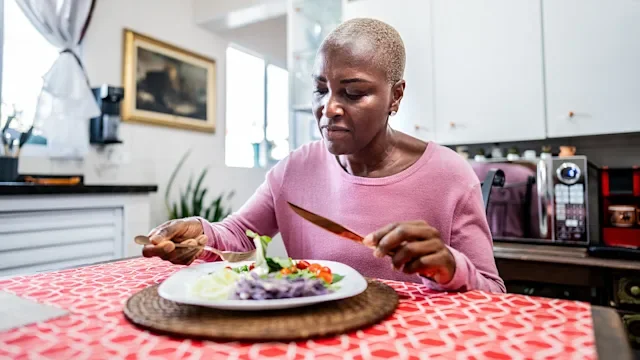Key takeaways:
Managing menopause symptoms at work can be challenging.
Coping strategies can range from putting strategically placed fans in your workspace to taking regular breaks.
The emotional aspect of menopause should not be overlooked.
Menopause is an inevitable and natural phase of a woman's life. But sometimes its timing can be inconvenient, to say the least. Hot flashes and mood fluctuations can make it extra hard to navigate the challenges of a professional career.
Managing menopause symptoms in the workplace can be difficult. How can you address menopause symptoms without compromising productivity? How do you maintain a polished and professional demeanor while experiencing the effects of hormonal changes?
Sometimes, it can feel like an uphill battle — even if you know what to expect. Here’s how three nurses describe their tactics for managing menopause in the workplace.
Even if you know it’s coming, do you really know?
Intellectually, Bridgette Jenkins — a nursing professor and nurse of 24 years — knew menopause was coming. She knew what to expect. And she knew it couldn’t be avoided.
But Bridgette, a 54-year-old health professional in Houston, didn’t know how extreme the actual experience would be. Professionally, she’s an author, speaker, and professional mentor, and she has a doctorate in nursing practice. She’s a life coach and chaplain, and she’s the past CEO of the Black Nurses Rock Foundation’s Houston chapter.
But none of her achievements or professional knowledge made menopause symptoms any easier to manage at work.
“I wasn’t devastated or sad. I knew it was coming, but not at this level,” she says. “Hot flashes don’t discriminate. They don’t care where you’re at.”


Her menopause experience has included severe hot flashes, night sweats, and gaining the “menopause fifteen,” she says.
She bought a fan that plugs into her computer for her desk at work and a tower fan that she carries from classroom to classroom when she teaches. She also has gotten into the habit of freezing a water bottle each night so that she always has a cool drink available. She carries a towel with her. And she incorporates breaks into her workday. Sometimes, she puts her head down on her desk. When she lifts it up, there is often a puddle of sweat where her head was.
- Vivelle-DotDotti and Estradiol
- ClimaraEstradiol
- DivigelEstradiol
She talked to her doctor about what to do. Hormone replacement therapy (HRT) is not an option for her as she has a cancer risk in her family. She has tried Imvexxy (estradiol) suppositories with no luck (because they caused vaginal dryness and irritation). Estring, another form of estradiol, is an option, and she is currently trying natural remedies.
She advises other women to “go to your healthcare provider. There may be something they can offer to help you cope.”
When menopause makes you cut back on work
Valerie Jordan, a nurse of 29 years, coped with her menopause symptoms by cutting back at work.
“I couldn’t keep up with the pace,” she says. “If I can’t be happy or comfortable, I don’t need to be there. No one wants me taking care of family members in this state.”


Valerie was using Depo-Provera (medroxyprogesterone), an injectable medication used for birth control and pain related to endometriosis as a treatment for her menopause symptoms. But she was kept on this regimen twice as long as is recommended, she says. It was only when she went for a bone-density scan, that they saw her bone density had dropped too low. Since then, she has tried some natural remedies, but nothing has worked to relieve her symptoms.
A sizzle she couldn’t turn off
When Savetria Bonaparte, a nurse of 33 years, started having menopause symptoms at work, she felt like she was on fire — but not in a professional sense. It was more like “heat from within that I couldn’t turn off,” she says.
Her symptoms included hot flashes, joint pain, aches, mood swings, and a foggy brain. The hot flashes proved to be extremely disruptive to her daily routine. At home, her clothes would be soaked and her sleep regularly interrupted — making it difficult to be rested for her job.
Savetria finally went to her healthcare provider when her symptoms got to be too much.


“I had to raise the white flag,” she says. “I asked, ‘What do you have for me?’”
Her options were hormone replacement therapy, a birth control patch, and an estrogen patch. She started the estrogen patch in 2018 and has now almost exhausted the 5-year recommendation for this treatment. She is currently trying other options, but with little luck.
Acupuncture is next on her list.
She tries to be honest at work when she has a moment of brain fog.
“I try to slow it down,” she says. “And I ask for the opportunity to write things down.”
She tries to get a good night’s sleep. At work, she has taken to carrying a handheld fan. In the winter, she takes breaks to stand outside for relief.
The emotional component
In addition to the physical discomfort and disruptions that come with menopause, Bridgette says there’s also a big emotional component.
“It brings up emotions about becoming an older woman,” she says. “You’re at the other end of your life and beyond child-bearing age. It’s solidified.”
So, though menopause has some benefits — namely, having no more menstrual cycles — many women see it as the end of a life phase, and that knowledge brings with it an emotional weight.
There is no way to avoid going through this transition. The exact symptoms and experiences that come with menopause may vary a bit, but the process is unavoidable.
Savetria encourages other women to “explore all options. We don’t have to suffer through the change.”
In terms of the best treatment, there’s no consensus, she says. “Try them all and see what works for you.”

Why trust our experts?

















